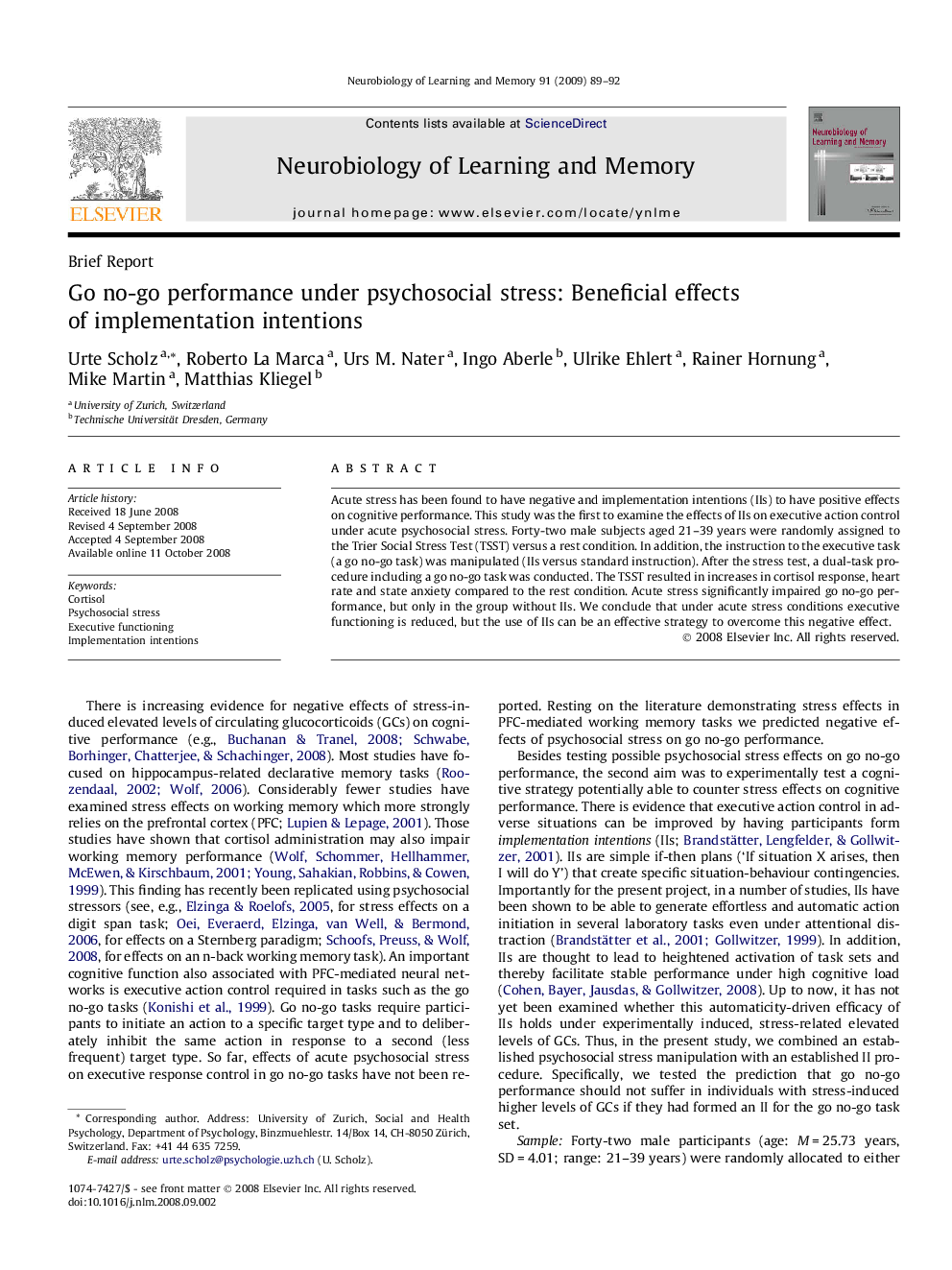| Article ID | Journal | Published Year | Pages | File Type |
|---|---|---|---|---|
| 937008 | Neurobiology of Learning and Memory | 2009 | 4 Pages |
Acute stress has been found to have negative and implementation intentions (IIs) to have positive effects on cognitive performance. This study was the first to examine the effects of IIs on executive action control under acute psychosocial stress. Forty-two male subjects aged 21–39 years were randomly assigned to the Trier Social Stress Test (TSST) versus a rest condition. In addition, the instruction to the executive task (a go no-go task) was manipulated (IIs versus standard instruction). After the stress test, a dual-task procedure including a go no-go task was conducted. The TSST resulted in increases in cortisol response, heart rate and state anxiety compared to the rest condition. Acute stress significantly impaired go no-go performance, but only in the group without IIs. We conclude that under acute stress conditions executive functioning is reduced, but the use of IIs can be an effective strategy to overcome this negative effect.
